Related Research Articles

The calorie is a unit of energy that originated from the caloric theory of heat. The large calorie, food calorie, dietary calorie, or kilogram calorie is defined as the amount of heat needed to raise the temperature of one liter of water by one degree Celsius. The small calorie or gram calorie is defined as the amount of heat needed to cause the same increase in one milliliter of water. Thus, 1 large calorie is equal to 1000 small calories.

Desmond John MorrisFLS hon. caus. is an English zoologist, ethologist and surrealist painter, as well as a popular author in human sociobiology. He is known for his 1967 book The Naked Ape, and for his television programmes such as Zoo Time.
A cedilla, or cedille, is a hook or tail added under certain letters as a diacritical mark to modify their pronunciation. In Catalan, French, and Portuguese it is used only under the letter c, and the entire letter is called, respectively, c trencada, c cédille, and c cedilhado. It is used to mark vowel nasalization in many languages of Sub-Saharan Africa, including Vute from Cameroon.

Encyclopédie, ou dictionnaire raisonné des sciences, des arts et des métiers, better known as Encyclopédie, was a general encyclopedia published in France between 1751 and 1772, with later supplements, revised editions, and translations. It had many writers, known as the Encyclopédistes. It was edited by Denis Diderot and, until 1759, co-edited by Jean le Rond d'Alembert.
Fred Arthur Leuchter Jr. is an American manufacturer of execution equipment and Holocaust denier, best known as the author of the Leuchter report, a pseudoscientific document alleging there were no gas chambers at Auschwitz-Birkenau. Prior to the document's publication, he was contracted by authorities of several U.S. states to improve the designs of instruments for capital punishment. He was charged in Massachusetts with misrepresenting himself to penitentiaries as an engineer, despite having no relevant qualifications. He plea bargained with state prosecutors and received two years' probation. He has also been accused of running a "death row shakedown", where he threatened to testify for the defense in capital cases if he was not given contracts for his services by that state.

Mu is the twelfth letter of the Greek alphabet, representing the voiced bilabial nasal IPA:[m]. In the system of Greek numerals it has a value of 40. Mu was derived from the Egyptian hieroglyphic symbol for water, which had been simplified by the Phoenicians and named after their word for water, to become 𐤌img (mem). Letters that derive from mu include the Roman M and the Cyrillic М, though the lowercase resembles a small Latin U (u).
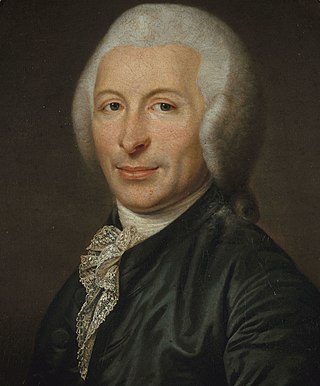
Joseph-Ignace Guillotin was a French physician, politician, and freemason who proposed on 10 October 1789 the use of a device to carry out executions in France, as a less painful method of execution than existing methods. Although he did not invent the guillotine and opposed the death penalty, his name became an eponym for it. The actual inventor of the prototype was a man named Tobias Schmidt, working with the king's physician, Antoine Louis.

Events from the year 1711 in Canada.

Ephraim Chambers was an English writer and encyclopaedist, who is primarily known for producing the Cyclopaedia, or an Universal Dictionary of Arts and Sciences. Chambers' Cyclopædia is known as the original source material for the French Encyclopédie that started off as a translation of Cyclopædia.

Cyclopædia: or, An Universal Dictionary of Arts and Sciences is a British encyclopedia prepared by Ephraim Chambers and first published in 1728; six more editions appeared between 1728 and 1751 with a Supplement in 1753. The Cyclopædia was one of the first general encyclopedias to be produced in English.

In biological taxonomy, race is an informal rank in the taxonomic hierarchy for which various definitions exist. Sometimes it is used to denote a level below that of subspecies, while at other times it is used as a synonym for subspecies. It has been used as a higher rank than strain, with several strains making up one race. Races may be genetically distinct populations of individuals within the same species, or they may be defined in other ways, e.g. geographically, or physiologically. Genetic isolation between races is not complete, but genetic differences may have accumulated that are not (yet) sufficient to separate species.

An annulet is a small square component in the Doric capital, under the quarter-round. It is also called a fillet or listel, although fillet and listel are also more general terms for a narrow band or strip, such as the ridge between flutes.
Decennalia or Decennia were Ancient Roman festivals celebrated with games every ten years by the Roman emperors.
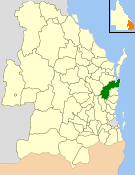
The Shire of Cooloola was a local government area located about 170 kilometres (106 mi) north of Brisbane – the state capital of Queensland, Australia. The shire covered an area of 2,968.8 square kilometres (1,146.3 sq mi), and was the product of a merger in 1993 between the City of Gympie and the Shire of Widgee, which had both existed since 1879–1880. It merged with several other LGAs to form the Gympie Region on 15 March 2008.
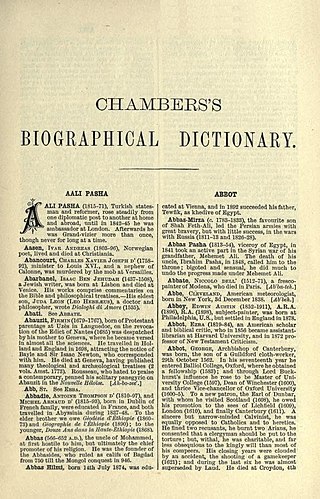
Chambers Biographical Dictionary provides concise descriptions of over 18,000 notable figures from Britain and the rest of the world. It was first published in 1897.
Chambers is a reference publisher formerly based in Edinburgh, Scotland, which held the property rights of W. & R. Chambers Publishers.
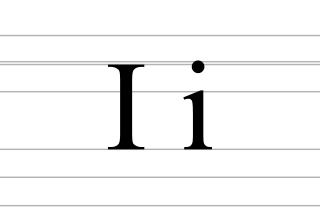
I, or i, is the ninth letter and the third vowel letter of the Latin alphabet, used in the modern English alphabet, the alphabets of other western European languages and others worldwide. Its name in English is i, plural ies.
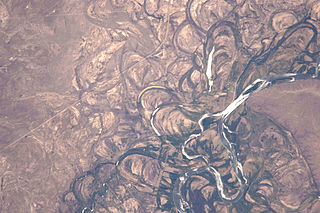
A meander scar, occasionally meander scarp, is a geological feature formed by the remnants of a meandering water channel. They are characterized by "a crescentic cut in a bluff or valley wall, produced by...a meandering stream." They are often formed during the creation of oxbow lakes.

Pump Court is a courtyard in Temple, London, now primarily housing barristers' chambers. It is the first on the left in Middle Temple Lane from 6 Fleet Street, leading to Inner Temple Lane and Lamb's Buildings. Its name referred to the pump in the middle.

The Leonard Neighbor Farmstead is a historic house located at 177 West Mill Road near Long Valley in Washington Township, Morris County, New Jersey. It was added to the National Register of Historic Places on May 1, 1992, for its significance in architecture. The farm overlooks the valley formed by the South Branch Raritan River. The house is part of the Stone Houses and Outbuildings in Washington Township Multiple Property Submission (MPS).
References
Citations
- ↑ Chambers 1738, GOT–GOV.
- ↑ Morris 1992, p. 946.
Sources
- Morris, Christopher G. (1992-09-10). Academic Press Dictionary of Science and Technology. Gulf Professional Publishing. ISBN 978-0-12-200400-1.
- Chambers, Ephraim (1738). Cyclopaedia: Or, An Universal Dictionary Of Arts and Sciences. Midwinter.